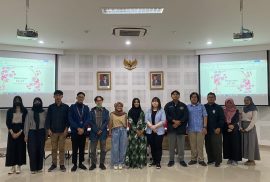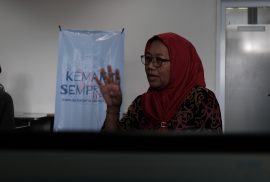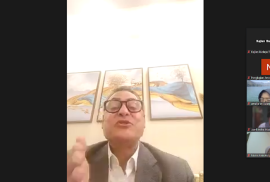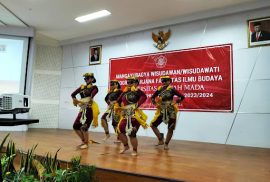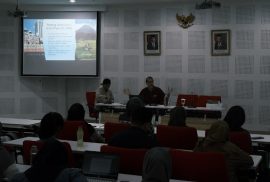Pada hari Rabu 20 Maret 2024, Program Studi Bahasa dan Kebudayaan Jepang (BKJ) mengadakan sosialisasi beasiswa Monbukagakusho/MEXT bersama Kedutaan Besar Jepang Jakarta dengan Fenny Gunadi yang merupakan Study Abroad Advisor dan First Secretary Kawakubo Yuriko Bagian Pendidikan Kedutaan Besar Jepang sebagai pembicara. Kegiatan ini diikuti oleh mahasiswa Prodi BKJ UGM dari berbagai angkatan.
Beasiswa Monbukagakusho atau MEXT adalah beasiswa Kementerian Pendidikan, Budaya, Olahraga, Sains, dan Teknologi Pemerintah Jepang yang ditujukan kepada akademisi dari luar Jepang dengan maksud ingin menempuh pendidikan di Jepang. Beasiswa tersebut terbagi kedalam berbagai tingkat pendidikan mulai dari tingkat Diploma sampai S3. Di jenjang Diploma terdapat dua pilihan beasiswa yaitu beasiswa Specialized Training College (Senshu) dan College of Technology (Kosen). Untuk S1 terdapat beasiswa Undergraduate (Gakubu). Sedangkan untuk S2 dan S3 terdapat beasiswa Research Student. Selain itu, terdapat program beasiswa non degree seperti beasiswa Japanese Studies untuk pertukaran mahasiswa dari jurusan Studi Jepang dan Teacher Training untuk guru Bahasa Jepang aktif di sekolah formal.
Bagi mahasiswa program studi Bahasa dan Kebudayaan Jepang, terdapat dua beasiswa yang bisa dimanfaatkan dan patut untuk dipahami alurnya. Beasiswa tersebut adalah Japanese Studies dan Research Student. Beasiswa Japanese Studies memiliki dua jalur penerimaan yaitu G to G (Government to Government) dan U to U (University To University). Pada alur G to G, mahasiswa akan melalui seleksi dengan dua tahap Screening. Tahap pertama (primary screening) adalah proses seleksi pendaftar dalam negara yang sama, lalu tahap kedua (secondary screening) adalah seleksi para pendaftar antar negara. Di lain sisi, alur beasiswa U to U dilaksanakan dengan universitas dari Jepang langsung menyeleksi pendaftar antar negara. Lalu untuk mahasiswa tingkat S2 atau S3, terdapat beasiswa Research Student dengan beberapa seleksi tambahan. Tidak hanya para akademisi, beasiswa juga terbuka kepada para pengajar bahasa Jepang yakni program Teacher Training selama delapan belas bulan. Program tersebut terbagi dengan enam bulan belajar Bahasa Jepang dan dua belas bulan pelatihan.
Dengan kesempatan yang dibuka oleh pemerintah Jepang, baik mahasiswa, akademisi, maupun pengajar dapat melanjutkan studinya ke Jepang secara cuma-cuma. Tidak hanya ilmu, pengalaman studi di Jepang tersebut akan menjadi daya jual tak ternilai bagi mereka yang berhasil mendapatkan kesempatan tersebut. Jadi, pengadaan sosialisasi ini diharapkan dapat mempersiapkan mahasiswa yang berminat mendaftar beasiswa dengan lebih matang. Mari berjuang bersama.

